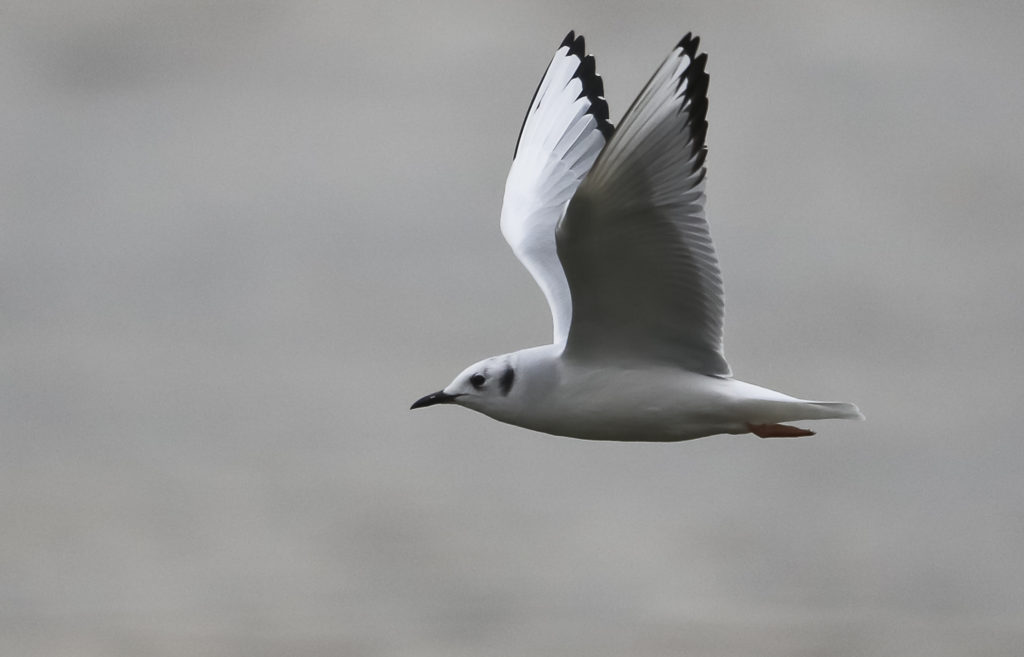Creature Feature

A Delicate Winter Visitor
By Wayne Bierbaum
In the winter, the Chesapeake Bay hosts millions of waterfowl that have escaped the frozen north. Along with the ducks, geese, grebes and loons come gulls. Some of the gull species are not usually seen here except in the winter and some are exceptionally rare. The most delicate of these visiting gulls is Bonaparte’s gull.
Named for a French ornithologist, Charles Lucien Bonaparte, nephew to that other Bonaparte, they fly in from their summer homes in northern Canada. Typically, Bonaparte’s gulls fly in tight flocks and feed by delicately dipping into schools of small fish, surface insects, fish eggs and crustaceans. They dive and dip with a rolling cloudlike motion. Their flight patterns are similar to the kittiwake’s, a small gull in the north Atlantic.
In contrast to other gulls, Bonaparte’s gulls are easily identified. They are small, with a wingspan of around 36 inches. The best identifying feature is the wings—white underneath with a thin black trailing edge and a white leading edge followed by a light gray on top. They have short red legs and a pointed red bill, like a tern. In the winter, they have a white head with a small black vertical line or dot behind their eyes but in summer their heads are black and slightly hiked-up in the back. I have only seen one flock with adult summer plumage and that was on the shore of Lake Erie in the early spring. They were likely on their way back to breeding grounds.
Uniquely, when at their breeding grounds of Canada, they nest in the trees of the boreal forest. They have one brood of three chicks a year. The chicks mature quickly and start migrating south fairly soon in their life.
The largest flock of Bonaparte’s gulls I have seen was a few years ago when several hundred showed up at the Conowingo Dam in December. I have seen smaller flocks along the shore at various locations along the Chesapeake Bay and an occasional single bird.
Whenever you spot gulls, try to see if there are any that seem unique or different. They may have come a very long way to be here.
